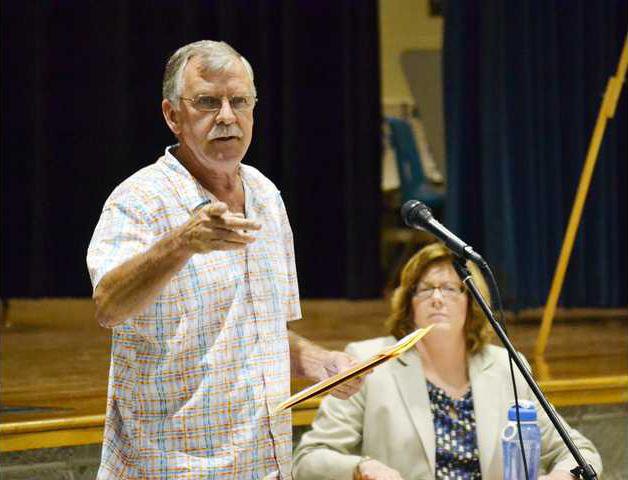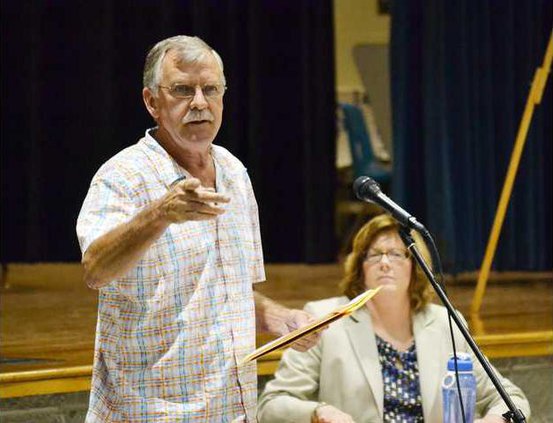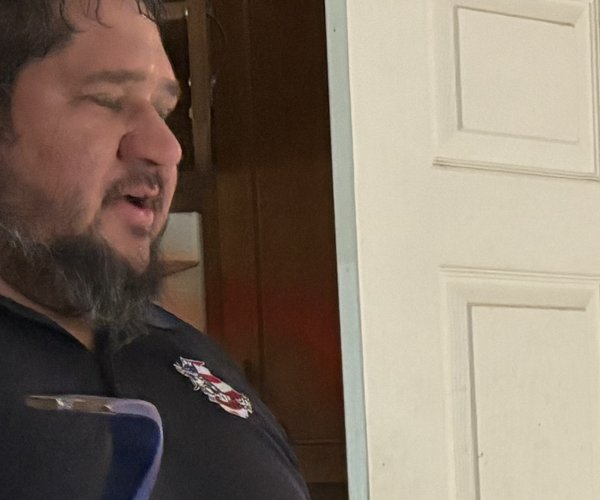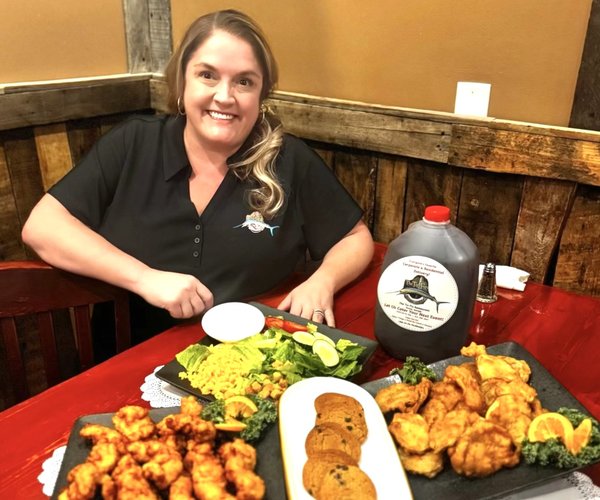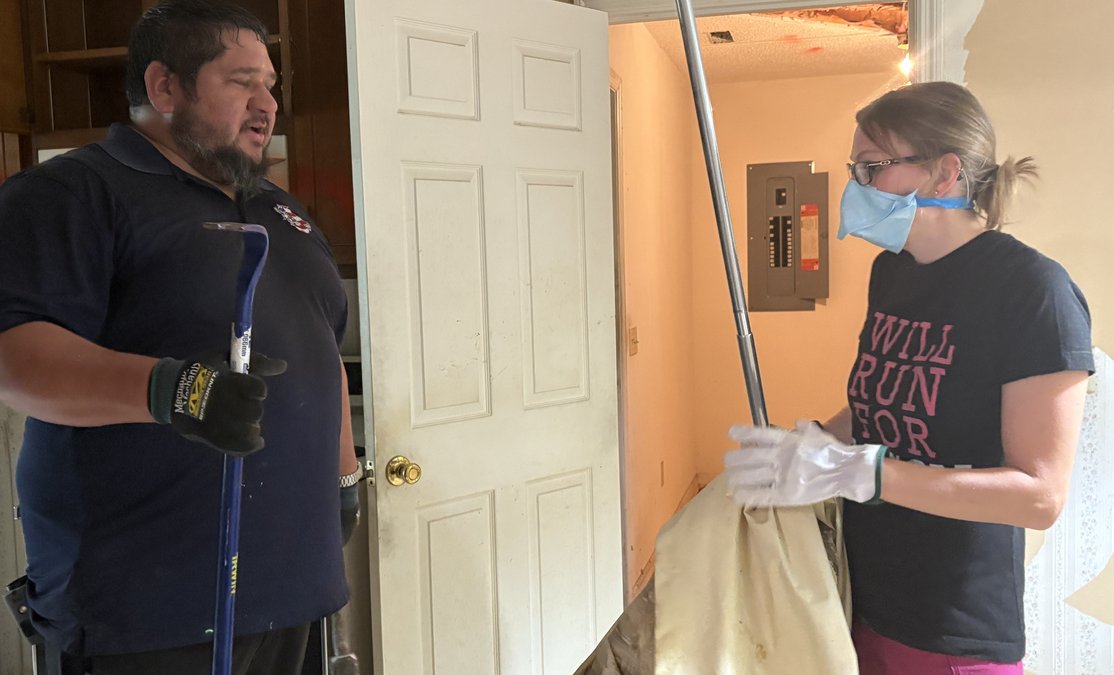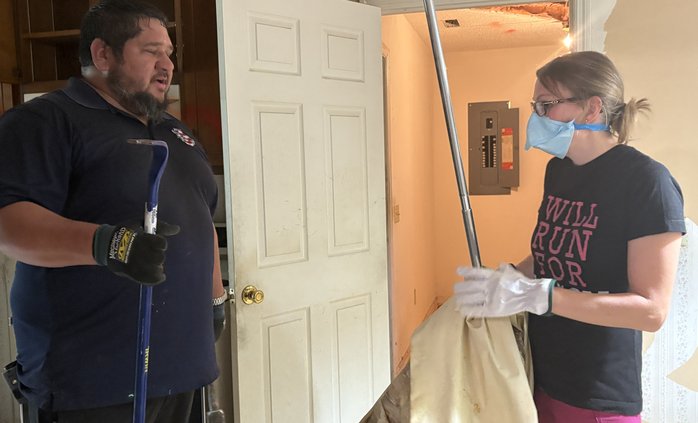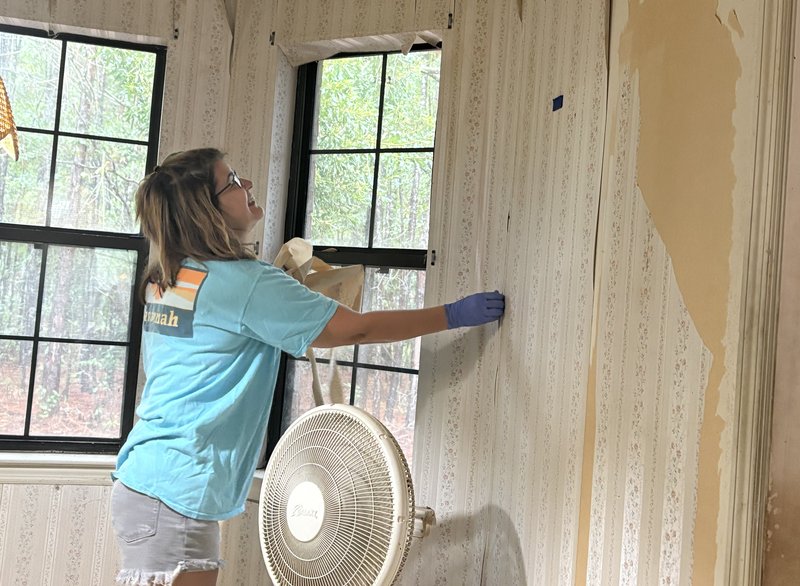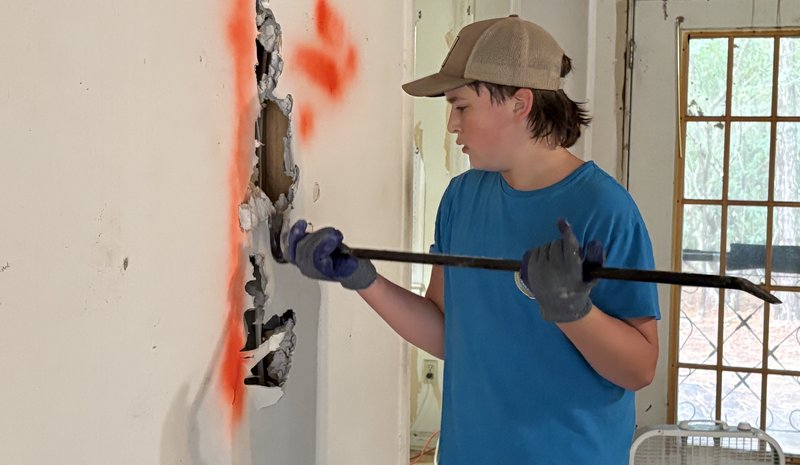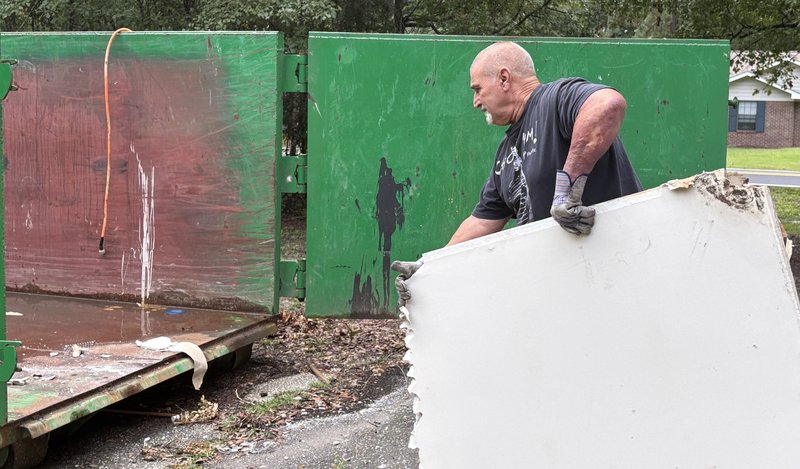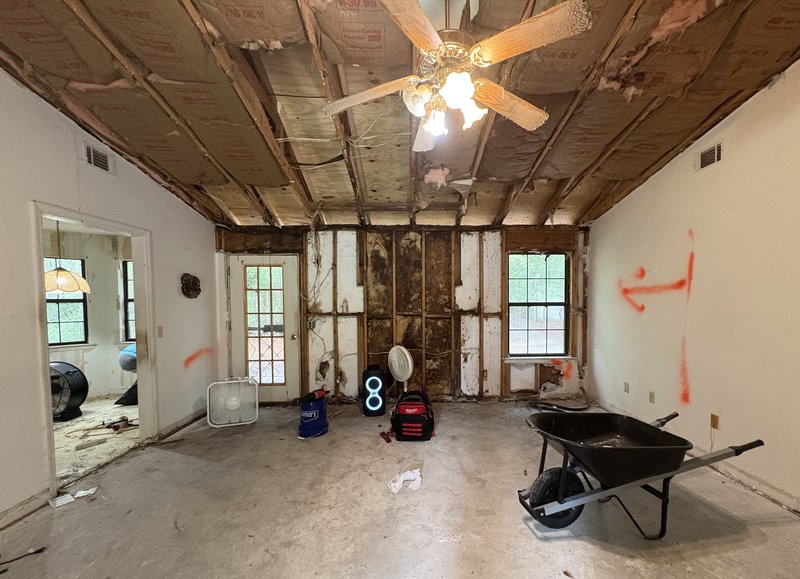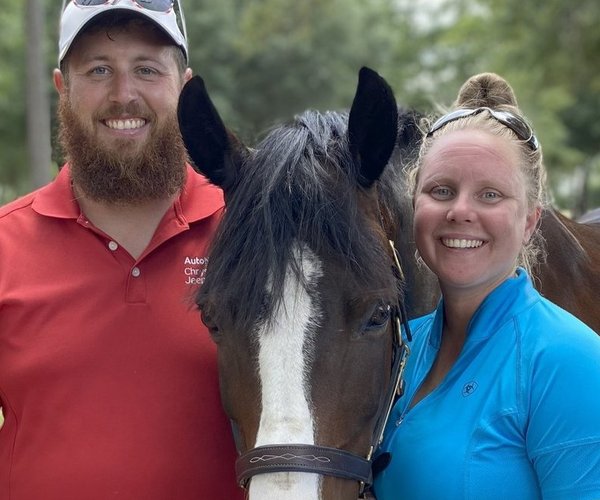State Environmental Protection Division officials heard a continued chorus from Ogeechee River residents, property owners and enthusiasts — no more dumping of pollutants into the stream.
The EPD held a public meeting Tuesday at Effingham County High School on King America Finishing’s draft permit to discharge treated wastewater into the Ogeechee River. The company applies flame-retardant material to uniforms, such as those for the military, at its plant in Screven County.
“At every meeting, we’ve said ‘no,’” said Al Driggers. “Why don’t you understand ‘no’? I’ve been to all the meetings. When are you going to get the message? We don’t want the chemicals in our river.”
“This isn’t a permit,” said Ann Hartzell. “It’s a carte blanche license to pollute.”
The EPD issued a new permit for King America Finishing, but after legal challenges were issued, the agency withdrew the permit. It issued the new draft permit in March, not long after another public hearing on the EPD’s consent order filed against the plant.
The draft permit limits the company’s discharge into the river at no more than 10 percent of the river’s flow. But speakers Tuesday night were adamant that the new limits didn’t go far enough and that the permit should be denied.
“Do not issue it as written,” implored Emily Markesteyn from the Ogeechee Riverkeeper. “For all the hardship and destruction the Ogeechee River has endured, any discharge permit composed for the river should contain the utmost protective limitations. It’s time to get this permit right.”
Markesteyn said one of the concerns was over a lack of control over THCP, and she said very little information about it — it is used in the flame-retardant process — was available, aside from material safety data sheets for its handling, which call it for it not to be introduced into ponds or streams.
“Shouldn’t EPD err on the side of caution and public safety, instead of waiting to be proven otherwise?” Markesteyn asked.
Other speakers also voice their frustrations at having to say to the same things repeatedly to the EPD, without much apparent impact.
“It’s not going to help the river at all. It’s going to continue to kill it with chemicals,” Glenn Collins said of the draft permit. “Not only have they killed the river, they have killed the wildlife and they are killing us. The little river cannot handle the effluent. EPD won’t listen. They need to prove to us they’re on our side.”
Said Connie Shreve: “You told us we don’t have any reason to be here, because you can’t stop the permit. We don’t want them to ever get another permit.”
Said Dianna Wedincamp: “This permit does not protect the basin and its people. Flame-retardant chemicals do not belong in our waterways, period.”
A massive fish kill was discovered in the river nearly two years ago. It affected more than 70 miles of the stream and wiped out approximately 38,000 fish. The fish kill was noticed downstream of the plant’s discharge, but no fish were found dead upstream of the outfall pipe.
Jane Hendricks from the EPD’s wastewater regulatory program, said the agency could deny the permit only under specific circumstances, but those circumstances didn’t apply in this case. Her statement was roundly jeered by the attendees.
“You people are supposed to be protecting us, you’re supposed to be protecting us from this and you’re not doing it,” said Jimmy Hayes.
Added Shreve: “Y’all are not doing your job. You’re not doing your job.”
Donna Love, co-owner of Love’s Seafood restaurant on the banks of the Ogeechee River, asked who could deny the permit.
“Why are you issuing permits when you can’t monitor what goes into the river?” she asked.
Jeff Larson, assistant EPD chief for the Ogeechee-Savannah watershed, said the agency can deny permits.
“But in this case, there is no real reason to deny the permit,” he said. “It is extremely protective and necessary for the river. We have a job to protect the river, and this permit will protect the river.”
Hendricks said that based on sampling, including 500 tests for toxins, the water in the river is safe, prompting a call from the audience for her to drink it.
“The permit will help ensure it remains safe and the water quality is improved,” she said. “We believe the best way to ensure the discharge remains safe and water quality downstream of the discharge improves is to get King American under the very stringent permit we’ve drafted.”
Hendricks also said the permit was strengthened in response to citizens’ comments to the EPD. She also said that potential litigation led the EPD to withdraw the draft permit last year and that lengthy litigation would have resulted in more years the discharge would not be subject to more stringent limits.
Yet many speakers remained unmoved in their opposition to the permit and the plant.
“We feel any permit is unacceptable because King America and Westex Industries are so unethical,” said Tommy Pope, part of a group representing 24 property owners along the river. “They added two flame-retardant lines without going through proper channels. How can we trust them to be self-monitoring?”
Former state representative Anne Mueller likened what is happening to the Ogeechee to the Love Canal, the infamous upstate New York neighborhood which became inhabitable after a toxic waste dump under it began to affect the area.
“We’re working on one here right now,” she said. “We’ll have it soon, if we don’t have it already.”
The consent order calls for the company to fund $1 million in supplemental environmental projects for the river, which many residents believe doesn’t do enough. Pope said the company should pay for a study, out of its own pocket, to see if every species of fish in the river is safe to eat.
“Now we have the most polluted river in Georgia,” he said. “We have no trust in King America Fishing, Westex Industries and very little, if any, in the Georgia EPD.”
Wedincamp and others also said the company should build a wastewater reuse system. According to the EPD’s white paper on the fish kill, its aftermath and King America Finishing, a land application for all of the company’s wastewater would require more than 34,000 acres of land cost $323 million. Land application for wastewater from the flame-retardant production lines would need more than 6,000 acres.
“We have talked until we are blue in the face about re-using the treated wastewater,” Wedincamp said.
The EPD will take comments on the draft permit. EPD officials will review the transcript from Tuesday’s meeting and any submitted comments.
“We’ll evaluate those and look at the existing draft permit, make any revisions we feel are necessary and then make a decision on the issuing of the permit,” Larson said.
Several speakers also called upon residents and property owners to consider the river and the permit the next time they vote. Current state Representatives Jan Tankersley and Jon Burns and state Sen. Jack Hill attended the meeting.
“Politicians, it’s time for y’all to step up to the bat and help us,” Collins said, “and force them to make them clean it up and do what’s right.”
Markesteyn said the Riverkeeper’s objectives were to stop pollution from damaging the river and to hold the company accountable for its violations through “meaningful restoration projects.”
“We will not lax enforcement and dishonest polluters ruin the public’s water ways,” she said.
